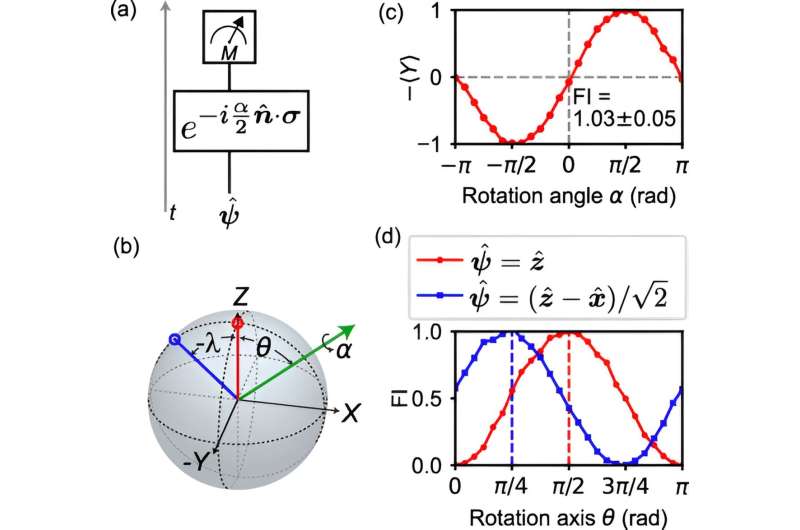
JULY 10, 2024 by Nick Oakes, Washington University in St. Louis
Collected at: https://phys.org/news/2024-07-quantum-sensors.html
The idea of time travel has dazzled sci-fi enthusiasts for years. Science tells us that traveling to the future is technically feasible, at least if you’re willing to go near the speed of light, but going back in time is a no-go. But what if scientists could leverage the advantages of quantum physics to uncover data about complex systems that happened in the past?
New research indicates that this premise may not be that far-fetched. In a paper published June 27, 2024, in Physical Review Letters, Kater Murch, the Charles M. Hohenberg Professor of Physics and Director of the Center for Quantum Leaps at Washington University in St. Louis, and colleagues Nicole Yunger Halpern at NIST and David Arvidsson-Shukur at the University of Cambridge demonstrate a new type of quantum sensor that leverages quantum entanglement to make time-traveling detectors.
Murch describes this concept as analogous to being able to send a telescope back in time to capture a shooting star that you saw out of the corner of your eye. In the everyday world, this idea is a non-starter. But in the mysterious and enigmatic land of quantum physics, there may be a way to circumvent the rules. This is thanks to a property of entangled quantum sensors that Murch refers to as “hindsight.”
The process begins with entanglement of two quantum particles in a quantum singlet state—in other words, two qubits with opposite spin—so that no matter what direction you consider, the spins point in opposing directions. From there, one of the qubits—the “probe,” as Murch calls it—is subjected to a magnetic field that causes it to rotate.
https://www.youtube.com/embed/wkuqtd5wKd0?color=whiteIn this video, WashU’s Kater Murch describes how his team leveraged “hindsight,” a property of entangled quantum sensors, to make time-traveling detectors. Credit: Washington University in St. Louis
The next step is where the proverbial magic happens. When the ancillary qubit (the one not used as the probe in the experiment) is measured, the properties of entanglement effectively send its quantum state (i.e. spin) “back in time” to the other qubit in the pair. This takes us back to the second step in the process, where the magnetic field rotated the “probe qubit,” and it is where the real advantage of hindsight comes in.
Under usual circumstances for this kind of experiment, where the rotation of a spin is used to measure the size of a magnetic field, there is a one-in-three chance that the measurement will fail. This is because when the magnetic field interacts with the qubit along the x-, y-, or z-axis, if it is parallel or antiparallel to the direction of spin, the results will be nullified—there will be no rotation to measure.
Under normal conditions, when the magnetic field is unknown, scientists would have to guess along which direction to prepare the spin, leading to the one-third possibility of failure. The beauty of hindsight is that it allows experimenters to set the best direction for the spin—in hindsight—through time travel.
Einstein once referred to quantum entanglement as “spooky action at a distance.” Perhaps the spookiest part about entanglement is that we can consider entangled particle pairs as being the very same particle, going both forward and backwards in time.
That gives quantum scientists creative new ways to build better sensors—in particular ones that you can effectively send backwards in time. There are a number of potential applications for these kinds of sensors, from detecting astronomical phenomena to the aforementioned advantage gained in studying magnetic fields, and more will surely come into focus as the concept is developed further.
More information: Xingrui Song et al, Agnostic Phase Estimation, Physical Review Letters (2024). DOI: 10.1103/PhysRevLett.132.260801. On arXiv: DOI: 10.48550/arxiv.2403.00054
Journal information: Physical Review Letters , arXiv

Leave a Reply